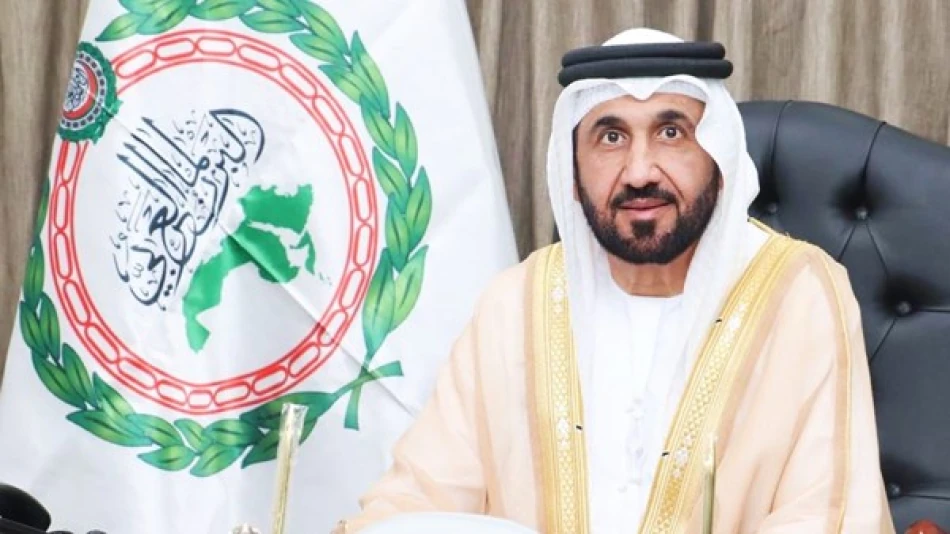
Arab Parliament Welcomes Outcomes of Qatar's Arab-Islamic Summit
Arab-Islamic Summit Delivers Unified Response to Israeli Actions Against Qatar and Palestine
The Arab Parliament has praised the outcomes of an emergency Arab-Islamic summit held in Doha, which delivered a coordinated regional response to Israeli aggression against Qatar while reaffirming opposition to ongoing military operations in Palestine. The summit, hosted by Qatar's Emir Sheikh Tamim bin Hamad Al Thani, represents a significant diplomatic mobilization that could reshape Middle Eastern alliances and regional security calculations.
Regional Solidarity Takes Center Stage
Mohamed bin Ahmed Al-Yamahi, President of the Arab Parliament, welcomed the summit's final communiqué, which provided unconditional support for Qatar's sovereignty and rejected any attempts to target the Gulf state. The declaration commits Arab and Islamic nations to stand "in one line" against threats to Qatar's security, while endorsing whatever measures the country deems necessary to respond to aggression.
This unified stance carries particular weight given the recent diplomatic history of the region, where Qatar faced a blockade from several Arab neighbors between 2017 and 2021. The current show of solidarity suggests a fundamental shift in regional dynamics, with traditional rivalries being set aside in favor of collective security arrangements.
Palestine Remains Central to Regional Agenda
The summit's communiqué also addressed what it characterized as ongoing "genocide and ethnic cleansing" against Palestinians, demanding international action to halt military operations that have continued for two years. This framing reflects a broader Arab and Islamic world strategy to internationalize the Palestinian issue through legal and diplomatic channels.
International Pressure Campaign
Al-Yamahi emphasized that the summit sent a "strong message to the international community" demanding urgent action to stop what participants termed occupation crimes. The Arab Parliament president indicated that these outcomes would be promoted in international parliamentary forums, suggesting a coordinated lobbying effort across multiple diplomatic venues.
Strategic Implications for Regional Security
The Doha summit's outcomes signal several important developments for Middle Eastern geopolitics. First, the explicit security guarantee for Qatar demonstrates how smaller Gulf states can leverage broader Arab and Islamic solidarity to deter potential threats. This model could influence security calculations for other regional actors.
Second, the summit's timing and scope suggest that Arab and Islamic nations are increasingly willing to coordinate responses to Israeli actions, potentially complicating diplomatic efforts like the Abraham Accords that sought to normalize Arab-Israeli relations outside the Palestinian framework.
Parliamentary Diplomacy as a New Front
The Arab Parliament's commitment to advancing these positions in international parliamentary forums represents an evolution in regional diplomatic strategy. Rather than relying solely on traditional government-to-government diplomacy, Arab states appear to be embracing multi-track approaches that include legislative bodies and civil society organizations.
This approach mirrors successful lobbying campaigns by other regional blocs and could prove more effective than previous efforts that relied primarily on formal diplomatic protests. The strategy acknowledges that contemporary international relations increasingly involve non-governmental actors and require sustained engagement across multiple institutional venues.
The summit's outcomes will likely be tested in coming months as participants work to translate declarations into concrete policy changes and sustained diplomatic pressure. The success of this unified approach could establish a template for future Arab and Islamic coordination on regional security issues.
Most Viewed News

 Layla Al Mansoori
Layla Al Mansoori






